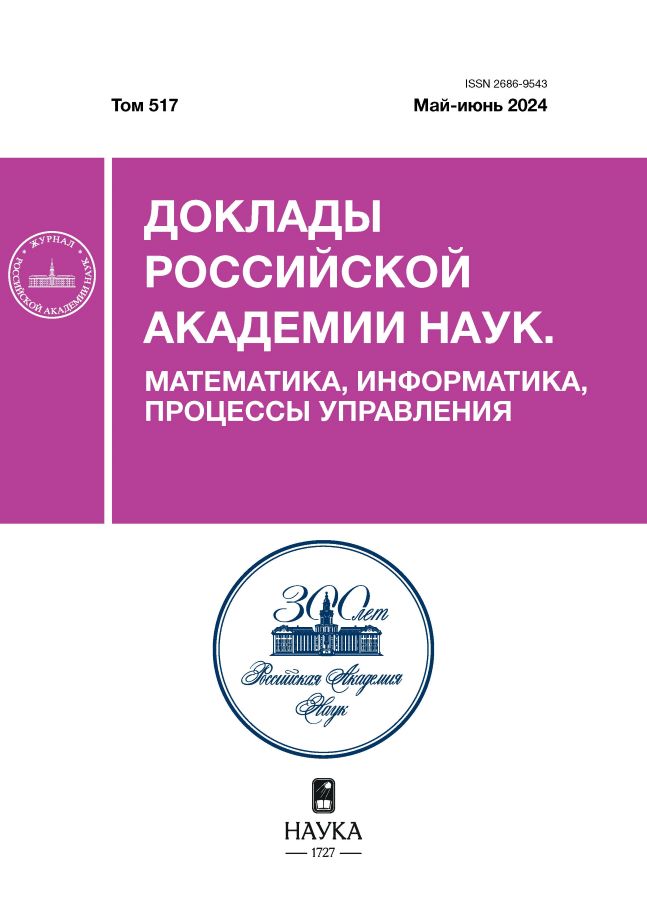AI Methods in Control of Personalized General Education
- Autores: Semenov A.L.1,2,3, Abylkassymova A.E.4, Rudchenko T.A.5
-
Afiliações:
- Lomonosov Moscow State University
- Institute of Education, HSE University
- Scientific and Educational Mathematical Center of the Volga Federal District, Lobachevsky Institute of Mathematics and Mechanics
- Abay University
- Axel Berg Institute of Cybernetics and Educational Computing, Federal Research Center “Computer Science and Control” of Russian Academy of Sciences
- Edição: Volume 517 (2024)
- Páginas: 5-11
- Seção: MATHEMATICS
- URL: https://jdigitaldiagnostics.com/2686-9543/article/view/647967
- DOI: https://doi.org/10.31857/S2686954324030011
- EDN: https://elibrary.ru/YBZKGG
- ID: 647967
Citar
Texto integral
Resumo
The paper proposes a new approach to control the process of general education. Digital technology tools are used to form spaces of goals, tasks and learning activities, and to record the educational process of each student. Artificial intelligence tools are used when choosing a student’s personal goals and ways to achieve them, to make forecasts and recommendations to participants in the educational process. Big data from the entire education system and big linguistic models are used. The effects of the approach include ensuring the success of each student, objective assessment of the work of teachers and schools, and the adequacy of the succession process to higher education.
Palavras-chave
Texto integral
Sobre autores
A. Semenov
Lomonosov Moscow State University; Institute of Education, HSE University; Scientific and Educational Mathematical Center of the Volga Federal District, Lobachevsky Institute of Mathematics and Mechanics
Autor responsável pela correspondência
Email: alsemno@ya.ru
Academician of the RAS
Rússia, Moscow; Moscow; KazanA. Abylkassymova
Abay University
Email: aabylkassymova@mail.ru
Cazaquistão, Almaty
T. Rudchenko
Axel Berg Institute of Cybernetics and Educational Computing, Federal Research Center “Computer Science and Control” of Russian Academy of Sciences
Email: rudchenko@gmail.com
Rússia, Moscow
Bibliografia
- Spady W.G., Schwahn Ch.J. Learning Communities 2.0: Educating in the Age of Empowerment. Lanham, MD // Rowman & Littlefield Education. 2010. 169 p. ISBN 978-1-60709-608-5.
- Spady W.G. Outcome-Based Education: Critical Issues and Answers. Arlington, Va: American Association of School Administrators, 1994. 212 p. ISBN 0-87652-183-9 94. https://files.eric.ed.gov/fulltext/ED380910.pdf
- Comenius J.A. The Great Didactic. 1896. Transl. by Maurice Walter Keatinge. https://en.wikisource.org/wiki/The_Great_Didactic_of_John_Amos_Comenius/The_Great_Didactic
- Semenov A.L. and Ziskin K.E. Expanded Personality as the Main Entity and Subject of Philosophical Analysis: Implications for Education // Doklady Mathematics. 2023. V. 108. № 4. P. 331–341. ISSN 1064-5624. https://doi.org/10.1134/S1064562423700965.
- Серр М. Девочка с пальчик. М.: Ад Маргинем Пресс, 2016. (Serres M. Petite Poucette. Paris: Éditions Le Pommier, 2012)
- Clark A., Being There: Putting Brain, Body, and World Together Again. MIT Press, 1998. http://www2.econ.iastate.edu/tesfatsi/BeingThere.AClark1998.EntireBook.pdf
- Семенов А.Л., Абылкасымова А.Е., Рудченко Т.А. Обучение математикой в XXI веке // Вопросы образования, 2024 (в печати).
- Константинов Н.Н., Семенов А.Л. Результативное образование в математической школе // Чебышёвский сборник. 2021. Т. 22. Вып. 1 (77). С. 413–446. https://doi.org/10.22405/2226-8383-2021-22-1-413-446
- Gardner H. Multiple Intelligences. The Theory in Practice. New York: BasicBooks, 1993. ISBN 0-465-01821-1. https://archive.org/details/multipleintellig00gard_0/
- Ware P. Personality Adaptations (Doors to Therapy) // Transactional Analysis Journal. 1983. № 1. P. 11–19.
- Levine E., Patrick S. What Is Competency Based Education? An Updated Definition. Vienna, VA: Aurora Institute, 2019. https://aurora-institute.org/wp-content/uploads/what-is-competency-based-education-an-updated-definition-web.pdf
- Simms J. The Critical Concepts (Final Version: English Language Arts, Mathematics, and Science). Marzano Resources. URL: https://www.marzanoresources.com/educational-services/critical-concepts
- Marzano High Reliability Schools. URL: https://www.marzanoresources.com/hrs/high-reliability-schools#conIframewrapp
Arquivos suplementares










